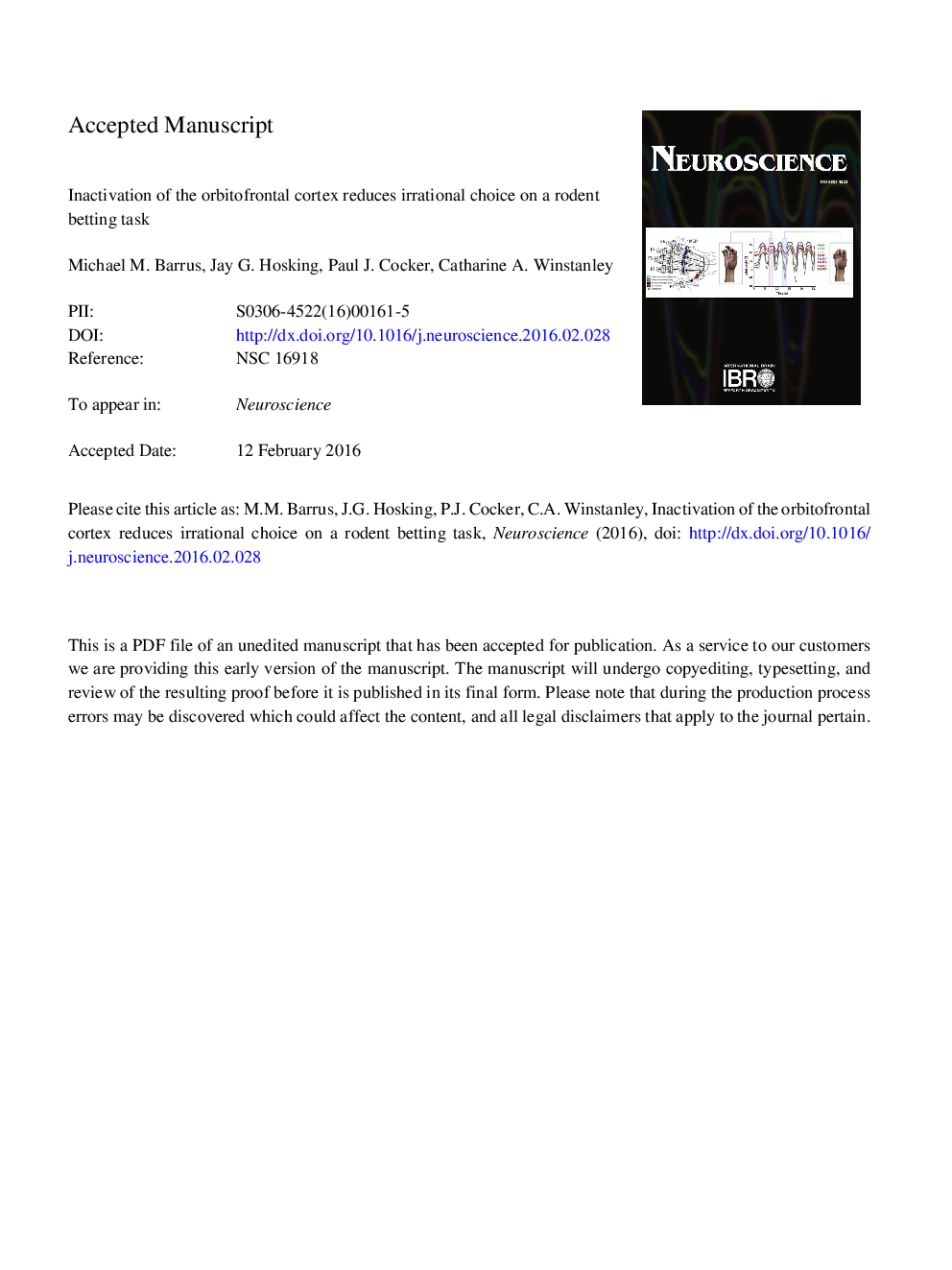ترجمه فارسی عنوان مقاله
غیرفعال کردن قشر اورباتیوفرنتال، انتخاب غیر منطقی را بر روی یک شرطبندی جوندگان کاهش می دهد
عنوان انگلیسی
Inactivation of the orbitofrontal cortex reduces irrational choice on a rodent Betting Task
| کد مقاله | سال انتشار | تعداد صفحات مقاله انگلیسی |
|---|---|---|
| 154310 | 2017 | 35 صفحه PDF |
منبع

Publisher : Elsevier - Science Direct (الزویر - ساینس دایرکت)
Journal : Neuroscience, Volume 345, 14 March 2017, Pages 38-48

